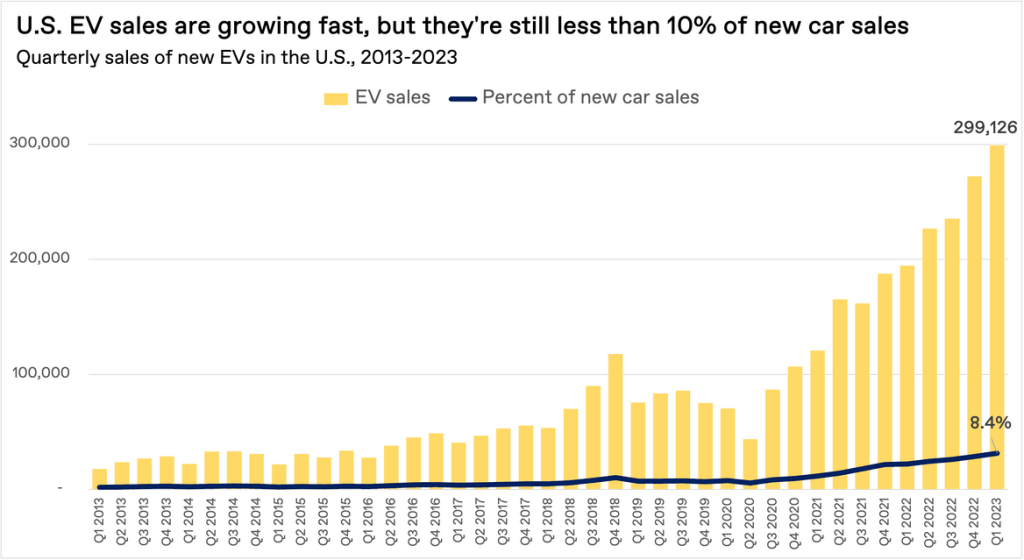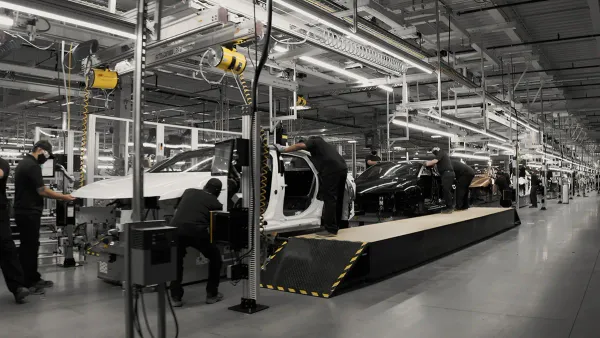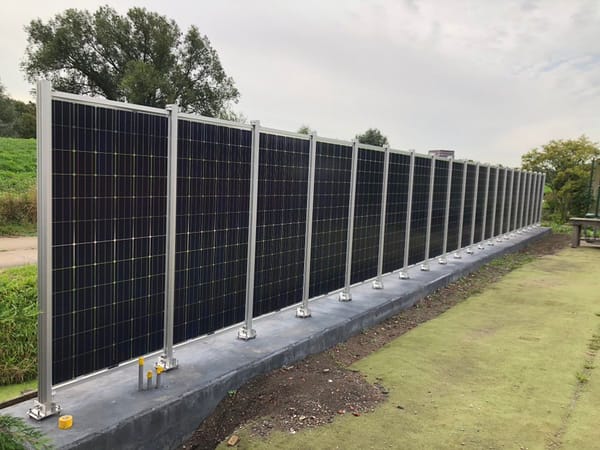Hacks whacks tax, and costs for EVs down while PVs up.
EV prices are dropping in the U.S., while solar installation breakeven times are taking longer.
Chart of the Week

1. Even without tax credits, American EV prices are going down.
With a starting price around $27,500 and a U.S. federal tax credit of $7,500, the Chevy Bolt is the most affordable EV available in the United States. But not for long, since General Motors is halting the car’s production so it can retool the Bolt plant to make EV trucks. GM says it will replace the Bolt this fall with an electric Chevy Equinox, priced around $30,000. Meanwhile, the Tesla Model Y starting price has dropped below the “average” American car price, to $46,990, and down about $20,000 since its introduction, the biggest price cut for any mass-market vehicle in modern history.
- You can get a much cheaper EV ride from Bolivia's Quantum, which has three seats, a 100 mile range, max speed of 35 miles per hour, and a $7,500 price tag.
- Surprising many prognosticators, Tesla’s battery business is now growing faster than EV sales.
- But EV sales in the U.S. are hung up by bad charging experiences, as this PBS Newshour report illustrates.
Sources: Bloomberg / Washington Post
2. GOP hacks take IRA whacks
Most Pres. Joe Biden’s big ticket items to fight climate change, like tax credits for carbon capture, EV cars, and renewable energy projects were passed over by the House GOP scalpel yesterday as Republicans threatened to eviscerate green tech programs as part of their package to raise federal debt limits for another six months. At the last minute, the tax credits were saved by Midwestern Republicans whose districts would benefit from them. Searching for a boogie man, the GOP lopped off $5 billion in climate pollution reduction grants, as well as $1.9 billion for local environmental justice programs, and another $1 billion of grants for local building energy efficiency programs. Now the Democratic-controlled Senate will have to negotiate against the House passed debt ceiling bill to attempt to restore some of the cuts.
- In comparison, tiny Netherlands, which is threatened with obliteration by sea level rise, has pledged $31 billion to fight climate change.
3. That giant sucking sound you hear is water leaving the atmosphere
Last year’s drought in the Horn of Africa killed at least 43,000 people and kicked off a famine that’s still ongoing. Now, a new study from World Weather Attribution finds that existing climate change makes such droughts more severe and 100 times more likely to happen.
- The United Nations said more than 20 million people in Kenya, Ethiopia, Somalia, Uganda and South Sudan have been affected by the drought.
- Meanwhile, Spain is entering its second year of drought and record temperatures that are so bad, rivers are drying up and conservationists are racing to collect fish to move them to still flowing rivers.
Sources: World Weather Attribution / Bloomberg / Inside Climate News / AP
4. New Cali solar rules makes rooftop solar breakeven take longer
California has seven times as much rooftop solar than the next state, Arizona, in large part because of the high rates utility companies had to pay panel owners when they bought electricity, making it so that most rooftop owners could make their investment back in five years or so. But that’s over now, since a new rule kicked in on April 14 that cut prices that utilities have to pay to rooftop solar owners by 75% – now it’ll take an average 10 years to breakeven on rooftop projects. Solar installers are reeling from the change, and are trying to figure out new approaches, like including battery storage with panels so owners can use captured electricity at night, but that can double installation costs.
- One Indian company is going the other direction, by attempting to build a solar farm the size of Manhattan.
Sources: Inside Climate News / WSJ / Canary
Other Things Happened
Some GOP senators hate ESG, but boy do they love green energy. Lots of small, rural towns are getting a shot in the arm by IRA tax credits for green tech. For instance, this big new battery recycling plant in tiny Covington, Ga. OECD is holding its global minerals conference (think lithium, cobalt, graphite) in Paris this week with free recorded seminars.





